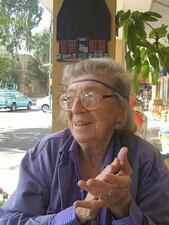
Netiva Ben Yehuda
Netiva Ben Yehuda was a Jewish-Israeli writer, poet, broadcaster, and Palmah officer. Ben Yehuda’s works surround her experiences before, during, and after her service in the Jewish underground Palmah and her dedication to enriching the lexicon of spoken Hebrew.
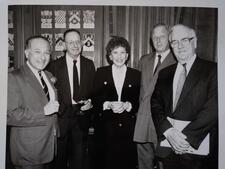
Hadassa Ben-Itto
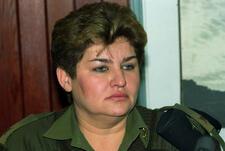
Yehudit Ben-Natan
Yehudit Ben-Natan is most known for her time as the head of the Israel Defense Forces’ Women’s Corps, where she waged a fierce campaign against the conservatism that marked everything related to the opening to women of new military occupations. She was particularly active in promoting women serving in the career army and tried to integrate women into combat units.
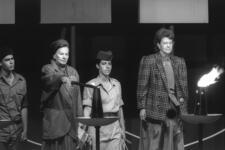
Miriam Ben-Porat

Hemdah Ben-Yehuda
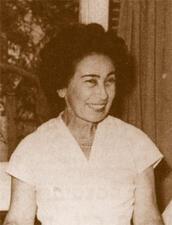
Mina Ben-Zvi
Mina Ben-Zvi was among the first women to serve in the military in Palestine, first as part of the British Auxiliary Territorial Service, then in local Zionist paramilitary organizations that eventually became the Israeli Defense Forces. She became the first commanding officer of the IDF’s Women’s Corps in 1948.

Rahel Yanait Ben-Zvi
Rahel Yanait Ben-Zvi was the second First Lady of Israel, wife to President Yizhak Ben-Zvi. Before and after Ben-Zvi’s tenure, she was active in the labor movement in Palestine and Israel and in the independence movement, as well as a prolific writer and recorder of her experiences in Erez Israel.
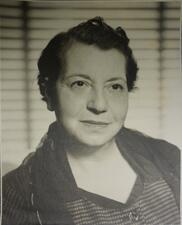
Hélène Cazes Benatar
Hélène Cazes Benatar was a Moroccan-born human rights lawyer who rescued thousands of refugees in North Africa during World War II. She was a life-long advocate for individual rights and political equality, especially for disenfranchised Maghrebi Jews. During World War II, she fought to protect victims of pro-Fascist Vichy rule; post-war, she promoted the migration of Moroccan Jews to Palestine and elsewhere.
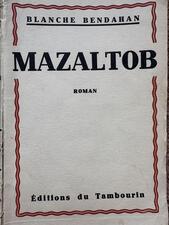
Blanche Bendahan
Blanche Bendahan, born in Algeria in 1893, to a Sephardi father and a Catholic mother, became a renowned writer, poet, and political activist. One of her most famous works, Mazaltob, addressed themes of tradition versus modernity, women's rights, and the intersections between Jewish, Muslim, and Christian communities. She continued to write about her homeland until her death in 1975, combining her multicultural background with modernist style.
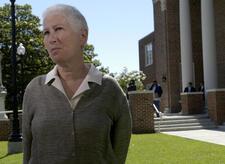
Rita Schwerner Bender
Rose I. Bender
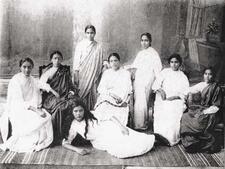
Bene Israel
Therese Benedek
Therese Benedek was among the pioneers of psychoanalysis, first in Germany and then in the United States. She developed expertise in psychosomatic medicine, sexual dysfunction, and family dynamics, but she is best known for her work on the psychosexual development of women.
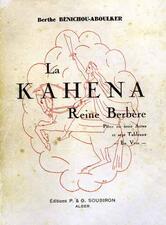
Berthe Bénichou-Aboulker
Writer and artist Berthe Bénichou-Aboulker was born in Oran, French Algeria, in 1886. She published a number of collections of poems and plays. After publishing her first play in 1933, she became the first woman writer to be published in Algeria.
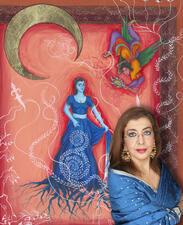
Siona Benjamin
Born in Mumbai, India, Siona Benjamin is an artist now living in the New York City area.
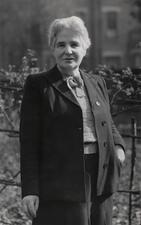
Helen Bentwich
Helen Bentwich was an active community organizer, activist, and local politician. She and her husband, Norman, aided in helping people escape Nazi persecution and split their time between Palestine and England for many years.

Berenice
A descendant of Herod the Great, Berenice was queen of Chalcis and Cicilia and opposed the Jewish Revolt in 66 CE. She eventually became the lover of Titus, the Roman general (and later emperor) who destroyed Jerusalem.
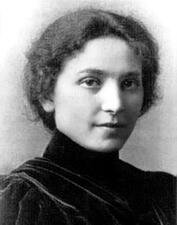
Senda Berenson
Known as the “Mother of Women’s Basketball,” Senda Berenson pioneered women’s basketball as the director of the physical education department at Smith College in Northampton, Massachusetts. Many of the rules she developed for women’s basketball became the standard ones used for seventy years.
Margarete Berent
Margarete Berent was the first female lawyer to practice in Prussia and the second female lawyer ever licensed in Germany. In 1925 she opened her own law firm in Berlin and, after fleeing Nazi Germany, opened her own firm in the United States. Not only was she the first female lawyer and the head of her own law firm, but she was also an ardent feminist and active in promoting opportunities for women.
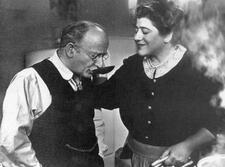
Gertrude Berg
Raissa L’vovna Berg
Raissa Berg worked was an eminent geneticist until Soviet Russian policies forced her out of her job. Nevertheless, she continued her research at home, eventually discovering “correlative Pleiades” in plants, and later contributed significantly to the reestablishment of the scientific field of genetics in Russia during her brief reinstatement. After emigrating to the United States, Berg remained active until her death in 2006.
Karen Berger
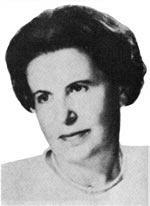
Lili Berger
A prolific literary critic and essayist who wrote fiction, short stories, and novels, Lili Berger worked to educate, instruct, expose, and memorialize. Her works captured the Polish-Jewish experience in the twentieth century, particularly those of other writers and artists.
Gretel Bergmann
Gretel Bergmann was a highly successful German track and field athlete. While studying at London Polytechnic, she became the British high jump champion in 1934. Returning to Germany to train for the 1936 Olympics in Berlin, she was denied entry to the German team even though she tied the German high jump record of 1.60 meters.
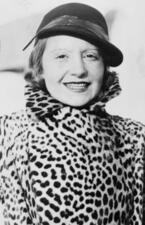
Elisabeth Bergner
Elisabeth Bergner, born in Austrian Galicia, was one of the most successful and popular stage and screen actresses in pre-World War II Germany, known for her superior artistic skills and wide variety of roles. During the war, she helped actors escape Germany. She was honored with the Schiller Prize of the City of Mannheim, the Ernst Lubitsch Prize, and the Austrian Cross of Merit for Science and Art.


